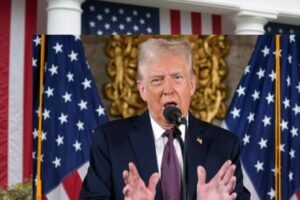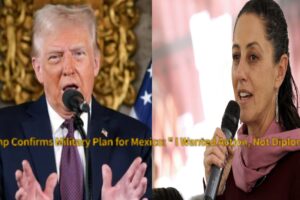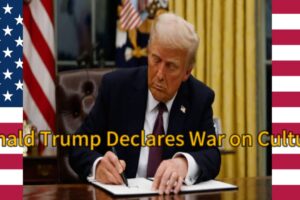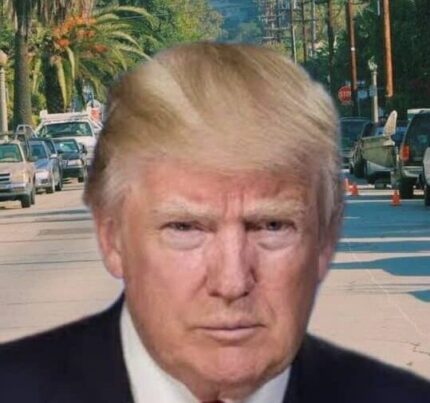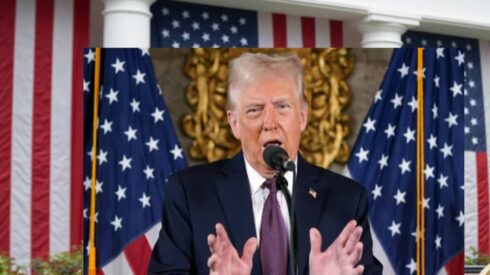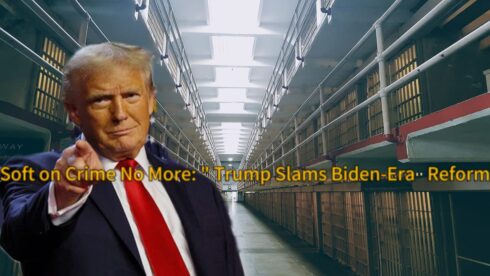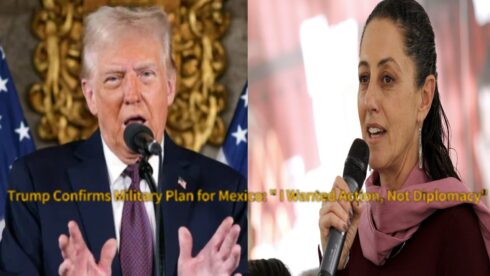President Donald Trump on Sunday declared his intention to impose a 100% tariff on all foreign-produced movies entering the United States. Framing the move as a measure to safeguard American film production and cultural influence, Trump described the current state of the U.S. movie industry as a “fast-dying” sector that must be urgently protected from foreign competition.
Hollywood Under Siege: Trump Decries Incentives Offered Abroad
In a post on Truth Social, Trump accused foreign nations of deliberately undermining American cinema by offering financial incentives designed to lure U.S.-based filmmakers overseas. The president characterized these actions as a “concerted effort” that threatens both economic and national security interests.
“Other Countries are offering all sorts of incentives to draw our filmmakers and studios away from the United States,” Trump wrote. “Hollywood, and many other areas within the U.S.A., are being devastated. This is a concerted effort by other Nations and, therefore, a National Security threat. It is, in addition to everything else, messaging and propaganda!”
Trump’s comments reflect a growing concern among conservative policymakers that the globalization of film production has diluted American cultural power. He did not name any specific countries but suggested that this “messaging” being exported through foreign-made films could influence public opinion in ways contrary to U.S. interests.
Tariff Details Unclear, Industry Reacts with Uncertainty
While Trump directed the Department of Commerce and the United States Trade Representative to begin work on the 100% tariffs, the practicalities of the proposed policy remain murky. It is unclear whether the tariffs would apply retroactively to existing imports or target only new foreign productions entering U.S. markets.
Industry experts and studio representatives expressed concern over the potential disruption to global distribution networks and co-productions, which have become staples of modern filmmaking. “This could seriously impact our international partnerships and revenues,” said one executive at a major U.S. studio who requested anonymity. “It’s not just about protecting domestic film—it’s about understanding how integrated the film economy has become.”
Some industry figures also warned that the move could backfire, leading to retaliatory measures from countries that import American films, further hurting the global reach of Hollywood’s content.
China’s Response and Broader Trade Tensions
Trump’s announcement comes amid intensifying trade tensions with China, a country that has already been the primary target of his economic policies. In recent months, China has imposed stricter quotas on U.S. film imports, reducing the number of Hollywood blockbusters entering its theaters.
Last month, Beijing signaled plans to cut back even further, citing concerns over content and cultural sovereignty. These moves follow the Trump administration’s imposition of up to 145% tariffs on a wide range of Chinese goods. With both sides doubling down on protectionist strategies, the film industry now finds itself caught in the crossfire of a widening trade war.
Observers fear that if other major markets follow China’s lead, the international box office—a crucial revenue stream for Hollywood—could suffer significant losses, especially for big-budget productions that rely on global audiences to break even.
Television and Streaming: A Sector Untouched—for Now
Interestingly, Trump’s statement made no mention of foreign-produced television series or streaming content, which have surged in popularity in the U.S. over the past decade. This omission has sparked speculation about whether future tariffs might extend beyond the silver screen to encompass digital platforms like Netflix, Amazon Prime, and Disney+.
Analysts suggest that if Trump’s policy proves popular with his base, it could be expanded to include television programming and streaming services. “There’s a strategic void in the policy details right now,” said Karen Li, a media trade analyst at the Center for Global Media Policy. “Given the convergence of film and television in the streaming age, ignoring foreign TV content might create loopholes.”
For now, though, content producers and streamers are left in a holding pattern, waiting for the Commerce Department to clarify how, when, and where these unprecedented film tariffs will take effect.
Tariffs as Culture War Weapon
Trump’s foreign film tariff announcement marks a new frontier in his use of trade policy as a tool in the broader cultural and political struggle. It aligns with a populist agenda that frames economic protectionism as a defense of American values and identity.
While the president’s base may rally around the idea of “saving Hollywood,” critics argue the move could damage international relations, hurt domestic studios with foreign investments, and ultimately limit the variety of content available to American audiences. As the entertainment industry braces for impact, one thing is clear: the intersection of art, politics, and trade has never been more combustible.

